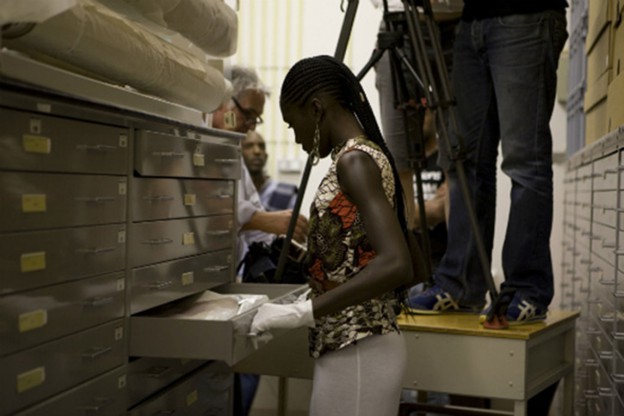Dates: Sep 26 / Oct 24 / Nov 1: 19:30-21:00hrs
Location: Piet Zwart Institute
Address: Karel Doormanhof 45, Rotterdam
Admission: free; the lectures are open to the public
Lecture # 1
Thurs Sep 26 ’13
Jeroen van den Eijnde: Bauhaus a conceptual model for design education?
Lecture # 2
Thurs Oct 24 ’13
Wendelien van Oldenborgh: La Javanaise
Lecture # 3
Fri Nov 1 ’13
Priscila Fernandes: The Forgotten Book of Aesthetic Education of the Modern School
“Now the world has been mapped by satellites, and nowhere is unknown, artists are exploring history as a new terra incognita. Artists mine both their own archives and those of institutions or organizations, connecting chains of ideas. They remix, re-present and re-enact, using the past as part of an understanding of the present.” Nicolas Bourriaud
The Master of Education in Arts of the Piet Zwart Institute takes of this academic year with the lecture series ‘The Forgotten Book of…’, organised in the context of the thematic seminar ‘Artistic Research and Critical Design’.
The title loosely refers to a project by the artist Priscila Fernandes called ‘The Forgotten Book of Aesthetic Education of the Modern School’. In her lecture Priscila Fernandes discusses her research into the Escuela Moderna, an early twentieth century school experiment that had the ambition to offer education grounded in rationality and science. The purpose of the school was to educate free thinkers who could work towards a just society. Although there is still a lot of material to find in the archives of the Escuela Moderna, a curriculum for art education is lacking. The Forgotten Book of Aesthetic Education of the Modern School is Fernandes’ enterprise to search for and imagine how this forgotten book of art education could look like. A project which raises interesting questions about how form and ideology may be intertwined and how this has an impact on a concrete (pedagogical) structure.
In his lecture researcher and teacher Jeroen van den Eijnde explores the historical influence of Bauhaus on design education. He starts of by examining the different historical categories of design education incorporated in the illustrious and eclectic history of Bauhaus. His account of the history of design education takes us along the ‘the workshop’ (theory of doing): ‘the design studio’ (theory of form and design processes), ‘the drawing room’ (19th century classes for the grammar of ornament) and last but not least ‘the theory class’ (scientific knowledge integrated in design education). Jeroen van den Eijnde relates his historical and archival research to the current, highly topical discussion about design education and the societal tendency to merge art and design with science and technology.
On the basis of a recent work La Javanaise (2012), Wendelien van Oldenborgh will try to expose how research plays a role in her practice. La Javanaise is an installation with projected video on two screens connected to one dialogue sound track. It is a filmic exercise, which centers on the circularity of relations between a Dutch textile company dealing with Africa, former colonies in the East Indies and the display of colonial history. Filmed in the former Colonial Institute – now Tropenmuseum and Royal Tropical Institute – the work features fashion model Sonja Wanda, artist Charl Landvreugd and theorist David Dibosa. Through unrehearsed dialogue staged in the museum spaces, La Javanaise addresses the inextricable links between imagination and authenticity and between colonialism and globalization.
The Forgotten Book of… is part of the thematic seminar Artistic Research and Critical Design.
—————————————-
For more information about the master programme, please visit: http://pzwart.wdka.nl/education-in-arts/
Piet Zwart Institute
Master Education in Arts
P.O. Box 1272
3000 BG Rotterdam
the Netherlands
pzwart.wdka.nl
/ pzwart-info@hr.nl
Join us on Facebook for the latest information on our public programme.
images:
Priscila Fernandes, research material of Escuela Moderna.
Wendelien van Oldenborgh, La Javanaise, 2012. Production still by Bárbara Wagner.

